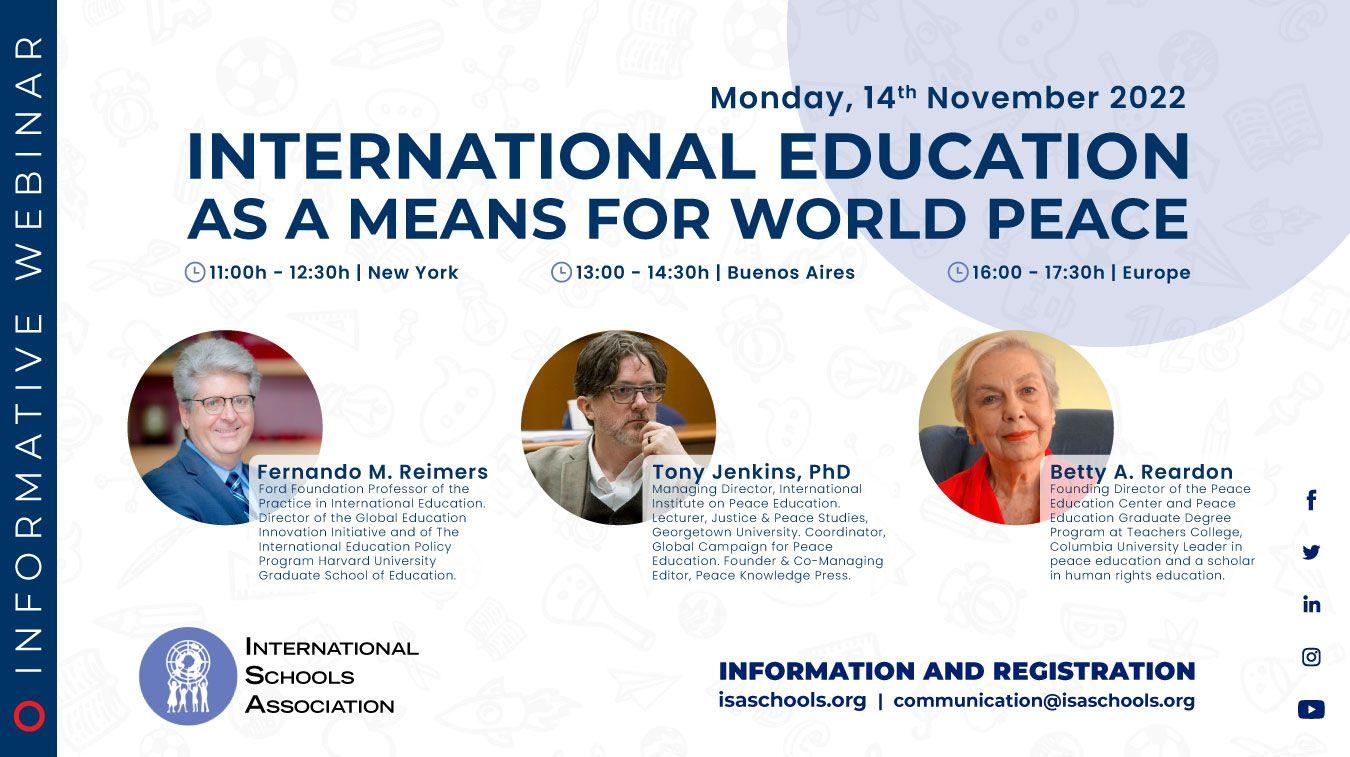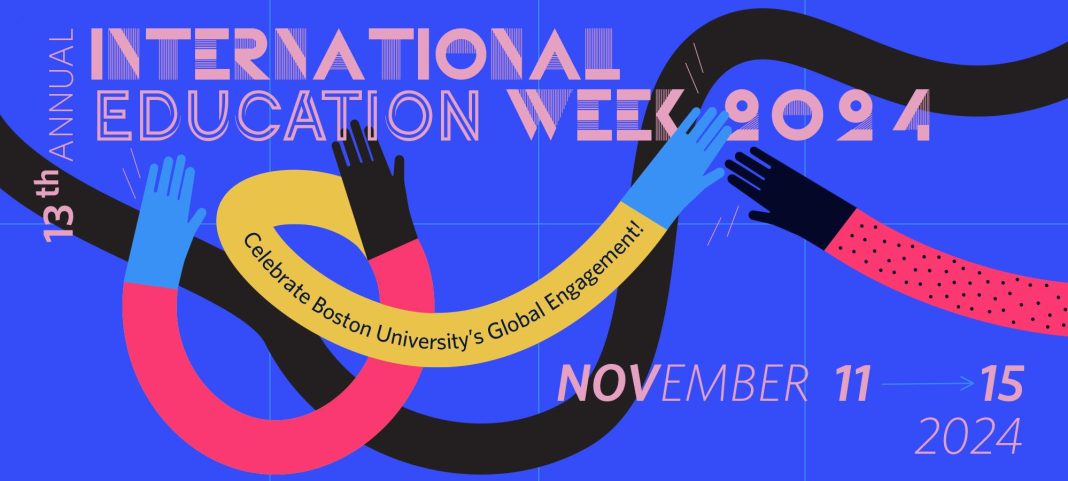In an increasingly interconnected world, the value of investing in international education programs for children is becoming more evident and compelling. As the global economy continues to evolve, equipping the next generation with the skills and perspectives necessary to thrive in diverse environments is crucial. This article explores the myriad benefits of international education programs, which extend beyond mere academic enrichment. From fostering cultural awareness and adaptability to enhancing language proficiency and critical thinking skills, these programs offer children a unique opportunity to develop a global mindset. By analyzing the transformative impacts of such educational investments, we aim to underscore their importance in preparing children to navigate and succeed in a complex, multicultural world with confidence and competence.
Expanding Global Perspectives through Early Exposure
International education programs serve as a catalyst for broadening a child’s worldview, allowing them to appreciate and understand diverse cultures from an early age. Such exposure is instrumental in cultivating a sense of global citizenship, encouraging children to engage with the world beyond their immediate surroundings. By interacting with peers from various backgrounds, young learners develop empathy and cultural sensitivity, qualities essential in our interconnected world. The ability to see issues from multiple perspectives fosters critical thinking and problem-solving skills, as children learn to approach challenges with an open mind.
- Cultural Awareness: Engaging with different cultures helps children appreciate diversity and develop a deeper understanding of global issues.
- Language Acquisition: Exposure to foreign languages at a young age enhances cognitive abilities and can lead to advanced proficiency in later years.
- Adaptability: Navigating new environments teaches children resilience and flexibility, preparing them for future global challenges.
Moreover, investing in international education programs lays the groundwork for future success in a globalized economy. As businesses increasingly operate across borders, the demand for individuals who can navigate cultural nuances and communicate effectively across cultures is on the rise. Early exposure to international education equips children with the skills and confidence needed to thrive in such environments, making it a valuable investment in their future.
Enhancing Cognitive and Social Skills in Diverse Environments
Investing in international education programs for children offers a transformative experience that significantly enhances both cognitive and social skills. These programs immerse children in diverse cultural settings, encouraging them to engage with different languages, traditions, and perspectives. Such exposure fosters critical thinking and problem-solving abilities as children learn to navigate unfamiliar environments and tackle challenges creatively. Moreover, the ability to adapt to various cultural contexts enhances their cognitive flexibility, allowing them to process information in more dynamic ways.
On the social front, international education programs nurture empathy and communication skills by promoting interaction with peers from varied backgrounds. This interaction encourages children to appreciate diversity and cultivate a global mindset. They learn to collaborate effectively, embracing different viewpoints and building interpersonal relationships that transcend cultural barriers. The experience also instills a sense of confidence and independence, as children gain the skills necessary to thrive in a globalized world. Key benefits include:
- Cultural Awareness: Developing an understanding and appreciation of different cultures.
- Language Proficiency: Enhancing language skills through immersion and practice.
- Adaptability: Learning to adjust and thrive in new environments.
- Global Networking: Building connections with international peers and educators.

Strategic Approaches to Selecting Quality International Programs
When considering international education programs for children, parents and educators must adopt a strategic approach to ensure they select a program that truly benefits the child’s growth and development. A well-chosen program can provide a rich tapestry of cultural experiences and academic excellence. Here are some key strategies to consider:
- Assess Curriculum Quality: Evaluate the curriculum’s alignment with global education standards and its ability to foster critical thinking, creativity, and problem-solving skills. Look for programs that offer a balanced mix of academic rigor and cultural immersion.
- Consider Cultural Exposure: Opt for programs that provide meaningful cultural interactions and experiences. These opportunities can broaden a child’s worldview and enhance their adaptability in diverse environments.
- Evaluate Language Offerings: Language acquisition is a significant benefit of international programs. Ensure the program offers comprehensive language instruction and opportunities for practical language use.
- Research Accreditation and Reputation: Investigate the program’s accreditation status and reputation within the international education community. A well-regarded program often indicates a commitment to quality and student success.
- Understand Support Services: Effective international programs offer robust support services for students and families, including counseling, academic advising, and cultural adjustment assistance.
By meticulously evaluating these aspects, parents and educators can confidently select international education programs that not only align with their educational goals but also equip children with the skills and perspectives needed to thrive in a globalized world.

Maximizing Long-term Academic and Professional Benefits
Investing in international education programs for children can be a transformative decision with profound long-term academic and professional benefits. By immersing students in diverse cultural environments, these programs cultivate a broad perspective that enhances critical thinking and problem-solving skills. Such experiences empower children to become more adaptable and open-minded, attributes that are invaluable in today’s globalized workforce. Additionally, international education fosters language acquisition, which not only improves cognitive abilities but also increases competitiveness in the job market.
Beyond cognitive and linguistic advantages, international programs provide children with unique networking opportunities. Engaging with peers from various backgrounds helps build a robust global network that can be pivotal for future career prospects. Students learn to collaborate across cultural boundaries, a skill highly sought after by multinational corporations. Furthermore, the confidence gained from navigating new environments independently equips children with leadership qualities and resilience. The benefits are clear: an investment in international education is an investment in a child’s academic prowess and professional success.
- Enhanced critical thinking through exposure to diverse perspectives
- Improved language skills boosting cognitive and professional capabilities
- Global networking opportunities for future career growth
- Cultural adaptability fostering leadership and resilience



